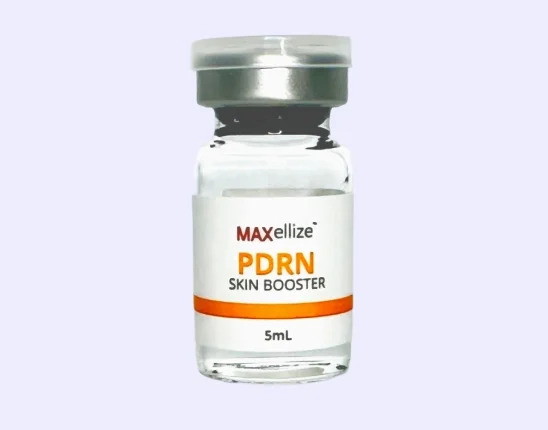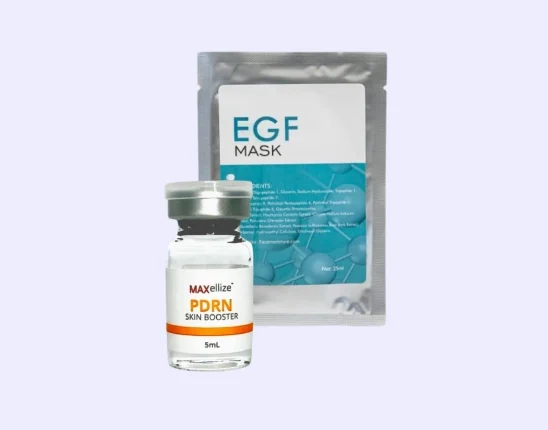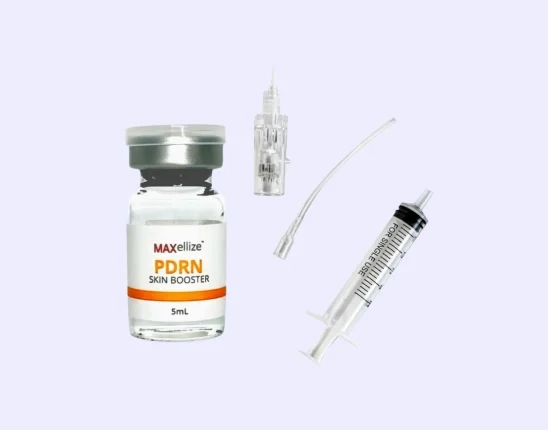Declining cognitive functions are one of the many signs of aging that people experience. If you find yourself losing focus and becoming more forgetful, then nerve growth factors can help you improve brain functions.
But what exactly is the function of the Nerve Growth Factor (NGF)? This important protein is made up of molecules in the brain that are responsible for different cognitive functions. NGF is necessary for the survival of sensory and sympathetic neurons in the brain because it promotes the growth and maintenance of axons and neurons.
Explaining the Nerve Growth Factor
Thanks to the efforts of scientists and researchers in different parts of the world, we know now that our brain attempts to reorganize itself by continuously producing new brain cells in a process known as “neurogenesis.” This revolutionary discovery served as proof that cognitive decline and neurodegenerative diseases can be treated.
Nerve growth factor (NGF) is a kind of neurotrophin that’s responsible for neurogenesis and maintaining the health of the existing brain cells. Having the right concentration of NGF in the body helps prevent different symptoms of brain and nerve conditions.
What It Is
Nerve Growth Factor, or simply NGF, is an important protein made up of amino acids that helps with different cognitive functions in the brain. It’s one of the 4 proteins that make up the “neurotrophins,” along with brain-derived neurotrophic factor (BDNF), neurotrophin-3 (NT-3), and neurotrophin-4 (NT-4).
In 1986, the Nobel Prize was awarded to Stanley Cohen and Rita Levi-Montalcini for discovering NGF. Dr. Levi-Montalcini claimed that using nerve growth factor eye drops improved her health and increased her lifespan. She lived on to be a centenarian until she died in 2012, but many scientists remain skeptical whether NGF was truly the reason for her longevity.
NGF is essential in promoting the growth, maintenance, and survival of the neurons and axons in the brains, leading to better nerve and axonal transport of impulses and information. It also repairs the myelin sheath, the insulating coat around the axons.
Why NGF Levels Matter
The amount of NGF produced in the body depends on the important balance needed in different body tissues. Specific conditions, diseases, and pathological states also affect the NGF levels detected in the blood, which is why it’s difficult to determine the exact distribution of the protein in a person’s body.
In a study that involved 157 subjects, age didn’t seem to be all that important in determining the levels of NGF in the body. However, it was observed that women have significantly lower levels of NGF than men. In another study, low NGF levels were recorded in people diagnosed with “Western diseases” like metabolic syndrome, obesity, and type 2 diabetes.
Another important thing to consider is that the concentration of NGF in the body varies between different areas. NGF can be detected in certain regions of the brain, in the cerebrospinal fluid (CDF), or the blood.
Although NGF has neuroprotective effects that keep the brain functioning well, high levels of this protein may also be detrimental. A 2014 study found that there’s a relationship between a high concentration of NGF and the risk of developing schizophrenia.
The key to maintaining optimal health and state of mind is to simply stabilize the levels of NGF in the body – not too little and not too much.
How to Increase NGF Levels in the Body
If the doctor recommends the administration of nerve growth factor for your condition, taking supplements is one of the easiest ways to do it. Here are some supplements to try that increases or supports the growth of NGF in the body:
- Lion’s Mane – an edible fungus that helps increase NGF levels in the blood
- ALCAR – Acetyl-L-carnitine (ALCAR) elevates the levels of neurotrophins and promote nerve regeneration
- PQQ – Pyrroloquinoline quinone (PQQ) is an antioxidant studied for promoting peripheral nerve regeneration and NGF stimulation
- Rosemary – Carnosic acid is also believed to induce the production of NGF
- Quercetin – a flavonoid that promotes nerve growth and peripheral nerve regeneration
- Vitamin D3 – this vitamin helps increase the NGF concentration in the brain as long as the patient has normal blood sugar levels
- Melatonin – direct injections of melatonin in the submandibular gland of lab mice increased the levels of NGF in their body
- Zinc – effective in improving memory and increasing NGF in animals as long as Vitamin A is sufficient in the subject’s body
- Astragalus – its extract helps promote nerve growth
- DHEA – contributes to the overproduction of NGF in the cortical neurons so it should be used with caution
- Ashitaba – daily intake of Ashitaba extract increases NGF production in the body by up to 20%
- Royal Jelly – topically applied royal jelly increases the NGF levels
- Chrysin – a flavonoid extracted from honey and some plants that increase NGF in the body
- Polygala Tenuifolia – a root extract used in oriental medicine increases NGF
In addition to taking supplements, doctors may also recommend certain activities to increase the body’s production of NGF, such as:
- Socializing with friends and family
- Yoga sessions and cardio exercises
- Stress reduction routines
- Falling in love and sexual relationships
Benefits of Nerve Growth Factors
Thanks to the role of human nerve growth factor in facilitating brain cell production and maintaining the health of existing ones, it provides health benefits that many patients can enjoy, such as:
1. Treatment of Mental Health Conditions
While the exact link between mood disorders and NGF levels still needs further research, there have been observations regarding their relationship. In a 2015 study, patients diagnosed with Major Depressive Disorder had lower levels of NGF in their blood compared to control groups.
Another study explored the levels of NGF, synapsin I, and BDNF in rats. The little critters were subjected to different physical exercises, which increased their NGF levels and improved their mood. This was measured based on the survival of neurons in the hippocampus and the increase in brain cells responsible for creating serotonin.
2. Improved Cognitive Function
Better cognitive functioning was observed after an increase in the NGF levels. The suspected reason for this is that NGF in the brain helps develop more nerves and improve connections. With better brain functions, patients can focus better on the task at hand. They also remember details better and think more clearly.
3. Decreased Risk of Alzheimer’s
Increasing the levels of acetylcholine in patients was theorized to be beneficial when it comes to reducing the symptoms of Alzheimer’s disease and other kinds of traumatic brain injury. According to a study performed on primates and rats, NGF was observed to have a protective role for the neurons activated by acetylcholine. This opens the door to the possibility of using NGF as a treatment option for patients suffering from Alzheimer’s disease and other neurodegenerative diseases.
4. Lower Risk of Multiple Sclerosis
Clinical studies about the relationship of NGF and myelin in humans are yet to be fully explored, but trials with the animal model and mouse model have already been done. Researchers found that NGF helped delay the onset of demyelinating diseases like Multiple Sclerosis. It also lessened the tissue injury and inflammation in the subjects.
Further evidence is needed, but scientists are working with different parameters to understand the protective effects of NGF and how it helps the treatment of nerve and brain diseases: whether NGF is effective in promoting the growth of myelin, repairing the damaged myelin, controlling the structural proteins, and helping produce more BDNF for the myelination of nerves.
5. Better Heart Health
Clinical tests on mice showed that NGF helped improve heart health by regenerating the damaged nerves around the blood vessels and arteries. The protein also helped in the formation of new blood vessels. The role of Nerve Growth Factor is also pivotal in the healing process, which may be used for enabling cell and tissue repair to the heart when the patient experiences a heart attack or major damage to the organ.
6. Improved Fertility
Scientists have also started exploring the involvement of NGF in reproductive health. In some publications and studies, NGF is often referred to as the Ovulation-Inducing Factor (OIF). NGF was found to induce the release of the egg from the ovaries (ovulation), which makes it a viable option for helping patients with fertility issues caused by ovulation problems.
The protein was also found to be abundant in semen. Although its true function there is still unclear. Some theories suggest that the function of nerve growth factor is to increase the survival rate of the sperm.
7. Better Pancreatic Health
Physicians and scientists have also started studying the link between the levels of Nerve Growth Factor in the body and the health of the pancreas. NGF is a necessary protein that helps pancreatic beta cells survive and stay healthy.
Additionally, diabetic patients and those with similar diseases (like diabetic neuropathy) have also been observed to have lower concentrations of NGF in their blood compared to control groups.
Possible Side Effects of Nerve Growth Factor Overabundance
But just like other hormones and components in the body, having too much concentration of NGF may also lead to adverse effects like:
1. Increased Neuropathic Pain
Since NGF is responsible for producing and maintaining sensory nerves and neurons, it’s also considered a factor in pain management. Patients with high concentrations of NGF in their blood may feel worse musculoskeletal pain. Sensory neurons are the nerve cells that send signals to the brain whenever a person feels physical sensations like temperature and pain.
NGF activates the pain sensations whenever it binds with the pain receptors inside the target cells, causing the patient to experience chronic or acute pain. High levels of Nerve Growth Factor are also observed in patients with chronic migraines, arthritis, and other pain syndromes. NGF also stimulates the inflammatory cells that release inflammatory mediators, causing inflammation in the affected areas.
As a result, doctors and researchers recommend the initiation of treatment using NGF inhibitors like fasinumab and tanezumab to relieve chronic pain caused by spinal conditions, osteoarthritis, and other diseases. When approved, these medications may be administered via subcutaneous (SC) or intravenous (IV).
2. Weak Autoimmunity
NGF is believed to affect the different functions of the immune system, nervous system, and hormonal system. Links between high concentrations of NGF and the risk of developing autoimmune diseases are being studied by doctors and scientists all over the world. In some cases, NGF inhibitors are prescribed for patients to help relieve some of the symptoms of their autoimmune disease.
3. Intolerance to Histamine
Nerve Growth Factor is responsible for activating the mast cells, which results in the production of histamine in the body. This triggers the body to display allergic reactions like itching, swelling, and runny nose. In worse cases, patients may also have headaches and asthma attacks caused by histamine intolerance.
Among the 4 neurotrophins in the body, only NGF has the ability to activate the mast cells and increase the body’s histamine intolerance.
4. Risk of Certain Cancers
Neurotrophins like NGF and BDNF are both subjects of research in cancer studies because they’re suspected to be linked to the increase in cancer cells. These proteins are believed to stimulate the spread and survival of tumor cells and promote the production of new blood vessels.
5. Risk of Schizophrenia
The effects of NGF on schizophrenic patients are still up for debate because subsequent studies show contradictory results. One of the studies suggests that specific genetic variation in NGF and the neurotrophin receptor decrease specific protein levels and increase the risk of schizophrenia. On the flip side, a small-scale human study reported that there were high levels of NGF and BDNF in the blood of schizophrenia patients.
According to the authors of the second study, they believe that high levels of neurotrophins aren’t always good for the body, in contrast to what was popularly believed. Excessive BDNF and NGF in the body may only worsen the patient’s mental health condition in specific cases.
Find High-Quality Medical Tools and Supplements at FACE Med Store
While NGF is believed to have tons of health benefits, there’s not enough scientific evidence to prove that its benefits outweigh the risks. Before taking NGF supplements or inhibitors, it’s best to talk to a medical professional first about the best topical treatment or other options that can help you achieve optimal health and brain functions.
At FACE Med Store, we help people take better care of their health by providing high-quality supplements and other health products they might need. We also partner with health facilities all over the country and provide them with medical-grade tools to help them treat their patients better.
Know more about the best deals and our products by contacting us today or checking out the stock list on our site.















